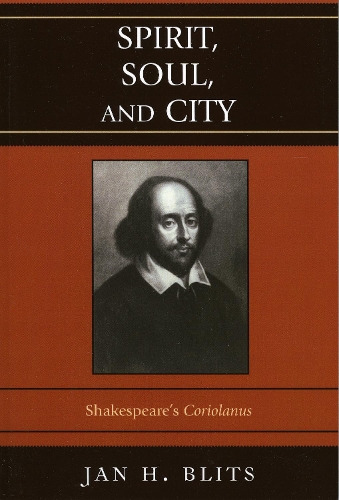
Spirit, Soul, and City: Shakespeare's 'Coriolanus'
(Paperback)
Publishing Details
Spirit, Soul, and City: Shakespeare's 'Coriolanus'
By (Author) Jan H. Blits
Bloomsbury Publishing PLC
Lexington Books
27th July 2006
United States
Classifications
Tertiary Education
Non Fiction
Literary studies: c 1600 to c 1800
822.33
Physical Properties
Paperback
254
Width 180mm, Height 226mm, Spine 19mm
390g
Description
Spirit, Soul, and City offers a new reading of Coriolanus, Shakespeare's most political play and the last of his great tragedies. Portraying the founding of the Roman republic and the life and soul of its legendary warrior, Coriolanus, the play brings to light not only the hidden working of Rome's mixed regime but the inherent tragic tensions in the soul's spirited tendency to strive to go beyond itself in order to be true to itself. Distinguished scholar Jan H. Blits provides a fresh interpretation of this rich, complex, and often perplexing play, combining meticulous detail and insightful breadth. Proceeding line-by-line through the play, this book reaches its conclusions by closely examining Shakespeare's texthis plot, characters, language, structure, allusions, puzzles, and other devices.
Reviews
At a time when Shakespeare studies have earned notoriety for thesis-ridden impositions Blits offers a seasonable corrective. His allowing the plot of Coriolanus to determine the course of his commentary gives relief from partisan pleading combined with surer access to Shakespeare's thought as Blits invites us to observe moral and political implications of a dramatic argument in its unfolding Act by Act, scene by scene, line by line. -- John Alvis, professor and director, American Studies Program, University of Dallas
Overall, this book offers a model of how to read Shakespeare that should serve as a subtle reproach to less careful readers of Coriolanus and an invitation to those who wish to consider in depth the philosophic and political questions that the play poses in all their stubborn complexity. * The St. John's Review *
The publication of Jan Blits's book on Coriolanus is a welcome event for all readers interested in Shakespeare and in Rome. The deep and detailed mode of interpretive commentary, familiar from his other fine books, explores the character of a man whose spirited insistence on self-sufficiency necessarily ends in his self-destruction. Blits's serious and spirited discussion helps us understand the Shakespearean hero most alien to our modern souls. -- Mera J. Flaumenhaft, St. John's College, Annapolis
Author Bio
Jan H. Blits is Professor, University Honor Faculty, at the University of Delaware.
